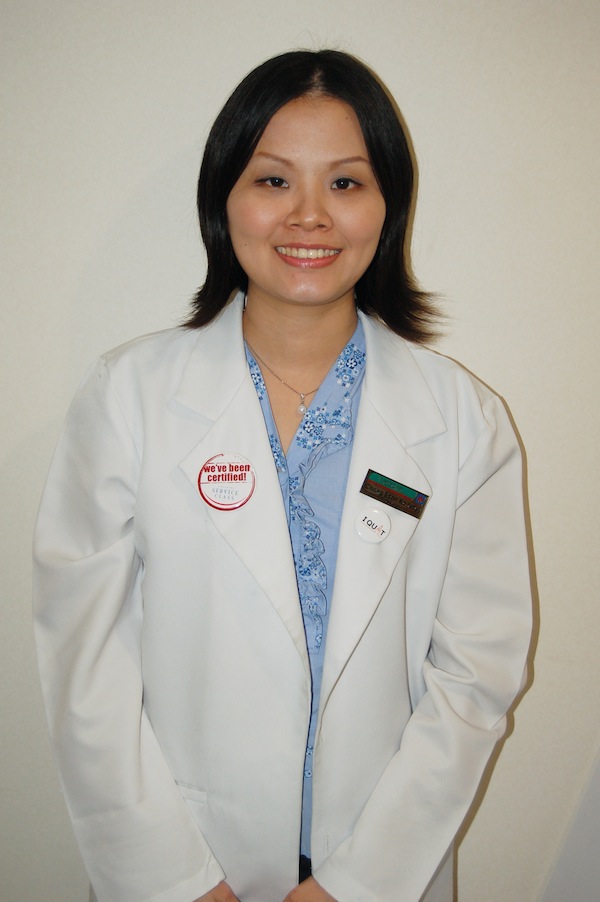
HOW TO STAY HEALTHY WHILE TRAVELING WITH CHILDREN THIS HOLIDAY SEASON
How to stay healthy and have a fun holiday without unwanted illness? We chat with Chong Boon Ka, Joy, Principal Clinical Pharmacist at Watson’s Ion Orchard, to gain some important information when it comes to medication and travel with children:-
How can we be best prepared for our trip?
If possible, children should complete their routine childhood vaccination programme before travelling. Parents may check with their doctors and/or pharmacists to explore alternative schedules if they must travel early or urgently. One should also consider an influenza vaccination for children over the age of 6 months.
Parents are recommended to avoid bringing children to areas with high malaria risk. Visit a doctor or pharmacist to obtain medications for malaria prophylaxis if travelling to malarious areas, Depending on the type of medicines prescribed, they have to be taken one day to two weeks before arrival in the malarious area to be effective.
Parents may consider probiotic supplementation to boost the digestive health and immunity whilst travelling abroad as risk of food poisoning may be increased due to consumption of contaminated food and water. A specific strain of probiotic known as Lactobacillus rhamosus GG can be used to reduce the occurrence of diarrhea during travelling. Alternatively, echinacea or elderberry supplementations may be considered for cold and flu treatment. Besides that, Vitamin B and multivitamins are useful to maintain energy levels for long haul trips.
Can a pharmacist help with vaccinations necessary for traveling to certain countries?
Yes, a pharmacist is well-positioned to give personalised advice on travel vaccinations. Recommendations may, however, vary depending on the destination and age of your child. Pharmacists have access to an array of creditable references to provide recommendations which are most appropriate for any given individual and travel destination.
How do we know if our child’s vaccinations are up to date? Must we see a doctor for such update information?
In Singapore, the National Immunisation Registry (NIR) maintains immunisation records for all Singapore residents aged 18 years and below. All immunisations administered at the polyclinics and private general practitioner clinics will be updated into NIR. Parents can view their children’s immunisation records at the NIR website www.nir.hpb.gov.sg by using the SingPass password.
The National Childhood Immunisation Programme has been implemented to provide recommended immunisation schedule for person aged 0 to less than 18 years old. There are optional vaccines which are not part of the National Immunisation Schedule. Examples of such vaccines include rotavirus and chicken pox. Parent can either talk to their doctors or pharmacists if they are considering optional vaccinations for their children.
What are the must-have medications (or health needs) we should pack into our holiday luggage?
It is necessary to bring along the following items:
- Paracetamol syrup: To relieve fever, headache and pain,
- Oral rehydration salt: To replenish salts lost due to vomiting, diarrhea, heavy sweating and other dehydrating conditions,
- Hand sanitizer,
- Insect repellent containing DEET (N,N-diethyl-meta-toluamide), especially for those travelling to areas where malaria/dengue is a risk, (for children older than 2 months, concentration of DEET should not exceed 30%, DEET is unsuitable for use in infants less than 2 months old). Citronella oil as insect repellent may be used in infants more than 6 months old. However, it is less effective than DEET and additional protection is required).
- N95 masks: Ensure an adequate standby supply when travelling to countries with poor air pollution control. They should be worn especially when the children are outdoors and the air quality is in the hazardous range,
- Antiseptic cream and plasters for minor cuts and wounds
It is also advisable to bring along medications for other common minor ailments as listed below. Consult the pharmacist on the most appropriate product for your child. See a doctor if symptoms persist or worsen after 7 days of self-treatment:
- Cough
- Runny and/or blocked nose
- Motion sickness, nausea and vomiting
What medications should we keep in our hand / carry-on luggage?
Medications with special storage conditions such as those requiring refrigeration should be packed in the hand luggage. Insulin is one good example. Due to the very low temperature within the aircraft hold, insulin may become frozen and deactivated, rendering it ineffective.
Also, emergency medication such as reliever inhaler should be packed in the hand luggage so that it is readily available for use should the child develop an asthmatic attack.
Dry eyes is also a commonly encountered condition during flight due to the low humidity within the airplane cabin. Thus, keeping a bottle of eye lubricant in the hand luggage may come in handy should the need arise.
If children (or family members) are on prescription medication, can we obtain extra to give us sufficient supply for our travels?
Parents may request for an increase in supply from their doctors to cover for a long trip. The doctor will decide whether to prescribe extra medication based on few consideration factors, for example how long the child needs the medication, how often the treatment needs to be reviewed and how long you will be away.
A letter from the child’s physician detailing his / her medical condition, current medications and use of any medical appliances may be useful during airport security checks.
Country specific rules may apply when travelling with controlled medications. Examples include methylphenidate for attention deficit hyperactive disorder (ADHD). Parents are advised to check the medicine import regulations of the country that they are going to.
Is it ok to travel with prescription medication?
Travelling with prescription medications is allowed as long as they are for personal use.
What measures can parents take to minimize risk of illness during their travels?
Adopt good food safety and sanitation practices. Avoid under-cooked food, raw vegetables and fruits and drink water that has been boiled or treated. As an added precaution, drink only from sealed bottles or containers.
Parents should remind their children to wash their hands regularly with soap and water for 20 seconds. If soap and water are not available, use an alcohol-based hand sanitizer.
Avoid close contact with sick people (e.g. kissing, sharing cups and utensils), visiting live farms or contact with wild animals.
Clean and disinfectant frequently contacted surfaces and objects such as children’s toys. Wash bottles, pacifiers, teething rings and toys in water that has been disinfected.
If travelling to a malaria prone country, wear long pants and sleeves and try to sleep with a mosquito net. For children older than 2 months, DEET 7-30% is recommended to be applied every 2 to 4 hours.
If travelling to a hot climate country, make sure the children stay in the shade and drink plenty of water to prevent dehydration. For toddlers and infants 6 months or older, use a sunscreen with sun protection factor (SPF) of at least 30 and reapply every 2 hours or after each water exposure e.g. swimming. For infants less than 6 months old, avoid sun altogether.
Consider supplements to boost the immune system and these include probiotics and vitamin C.
What can parents do to help themselves stay healthy during travel?
Same as above, but to use DEET 20-30% if travelling to malaria prone country. However more importantly, relax and enjoy the trip. Stress will reduce one’s immunity, which increases the risk of illness.
Can you tell us the essential travel tips for expectant mothers?
First, transportation issues pertaining to air travel should be considered. Most commercial airlines will not accept women after 34 weeks of pregnancy on flight, with some having earlier cut-offs. In some cases, it may not be advisable to fly during pregnancy, for example if the pregnant woman has a history of uncontrolled high blood pressure or premature labor. For expecting mothers who plan to travel, a consult with their doctors is recommended.
Compression stockings and certain leg exercises are recommended particularly during long flights to reduce the risk of developing blood clots. Food and water safety measures should be observed to prevent the occurrence of traveler’s diarrhea.
Pregnant women are also encouraged to talk to their doctors or pharmacists around 4 weeks prior to the trip for travelling advice which includes vaccination recommendations.
Disclaimer
Information provided by this article is solely for informational purposes only and is not intended as a substitute for the advice provided by your physician, pharmacist or other healthcare professional. You should not use the information for diagnosing or treating a health problem or disease, or prescribing any medication or other treatment. Always speak with your physician, pharmacist or other healthcare professional before taking any medication or supplement, or adopting any treatment for a health problem. Under no circumstances will Watsons Personal Care Stores Pte Ltd be liable to any person for damages of any nature arising in any way from
the use of such information
Written by: Chong Boon Ka, Joy, Principal Clinical Pharmacist at Watson’s Ion Orchard
Date of Submission: 18th Nov 2014



Great tips! I always travel with a big bag of medication for the kids. And of all of them, probiotics has been the most well-used.
Thanks dor sharing these very important tips. Being able to respond to emergences ASAP during a trip may save lives!
Thanks for the tips. We always travel with a big bag of medication for our children, the custom clearance would sometimes check what we have!!
Nice one! Normally I bring paracetamol and coughing/flu meds.. now that my kids can take tablet it is even easier! 😀
ooh, i never knew the pharmacists at Watsons can do so much more than simply dispensing medicine we request for. thanks for sharing!
Informative tips! To add on, I think a comprehensive travel insurance also gives parents the peace of mind to seek medical help overseas when the need arises.
Such a handy list to have! We usually just head to our doc and get him to give us what he thinks would be necessary. But looks like we should add more from this list!